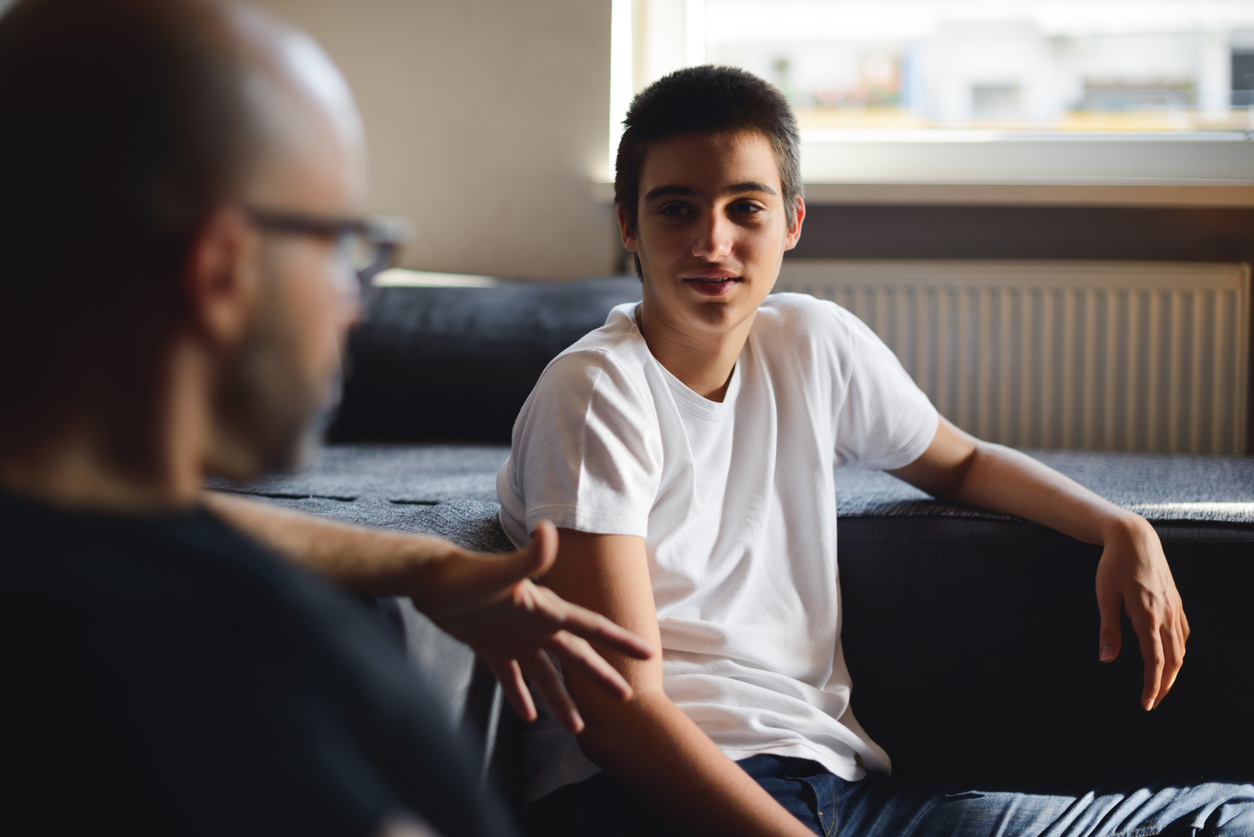Supporting Your Teenager’s Mental Health

Between studying for exams, making friends in a new school or college, and navigating the ever-changing social media landscape, there are lots of potential challenges facing young people today. It can be hard for parents to connect; they may fear their child is struggling mentally, but not know how to broach the issue. Kiki Martire is Outreach & Training Officer at SpunOut.ie, an Irish information website that aims to empower young people. She says the strain on teenagers is particularly prevalent as they head back to school and start preparing for the Leaving Cert.
Pressure to be Perfect
“It’s a really stressful time”, she begins. “Students often feel like if they don’t do well on this one thing, it’s going to have terrible knock-on effects in the future. The expectation and pressure to be perfect really weighs heavy.” Kiki recommends a two-pronged approach when it comes to dealing with stress around exams and studying. “First,” she says, “it’s about putting things in perspective – letting them know this does not have to decide their whole life path. Parents should make sure their children are getting enough sleep, eating nutritious foods and being active once a day, whether that’s yoga, walking the dog, hiking, or whatever works for them. It’s having a time or place they’re going to study, but also building breaks and relaxation into that routine.”

“Secondly,” she continues, “as much as we can emphasise self-care, there really needs to be a larger cultural change, where we’re not just telling young people to ‘cope better’, but examining the pressurised culture we’re creating for them. We’re putting way too much stress on them, and there’s such intense expectations for them to be perfect and have everything figured out. But that’s never what being young is – it’s always been about experimenting with different things and making mistakes. Are we still as a culture allowing young people to do that?”
Navigating Social Media
Understandably, lots of parents’ fears are centred around social media; who their children are communicating with online, and what kind of content they’re accessing. Compared to their ‘digitally native’ children, parents may not feel up-to-date when it comes to the latest social platforms and trends. “By and large,” says Kiki, “parents of young people right now didn’t grow up with social media. For them, it’s a scary and foreign thing, whereas for young people, it’s the language they grew up with.”
When it comes to managing young people’s online usage though, it’s important not to be overly alarmist. Opening up a healthy dialogue is the best way to approach any potential issues. “There’s lots of positives around social media,” Kiki notes. “It’s a way for young people to express themselves and connect. There are negatives too though, the stress of constantly comparing yourself to other people. I don’t blame parents for being wary, but the fact of the matter is: social media isn’t going anywhere. It’s much better to talk about the ways young people can cope and have a healthier relationship with it, rather than just saying ‘get offline’, because that’s not really realistic.

Look Out for Tell-Tale Signs
How will parents know if their child or teenager is struggling mentally? There are plenty of signs, says Kiki. “Look out for big behavioural changes, like not sleeping well or complaining of night terrors. Changes in eating habits is another one, or if they stop doing the things they love, and withdraw from friends and activities.” Lots of parents notice these changes, but don’t know how to broach the issue. They don’t want to feel like they’re intruding or nagging, and fear pushing the child further away. For Kiki though, it’s important to speak up. “It’s ok to ask someone straight out how they’re feeling. The worst thing you’d want your child to say is, ‘You never asked me how I was’. There’s a difference between nagging and having an interest in the mental well-being of your child. It’s important that they feel supported, and that they know there won’t be judgement or blaming.”
SpunOut as a Resource
SpunOut.ie is a great resource for teenagers and young adults, but also parents. “Our site is great because it allows you to tap into young people and what’s on their minds,” Kiki explains. “Our site has hundreds of fact sheets with relevant information, so parents can educate themselves – maybe they don’t know what Tinder is, or what viral shaming means. They can also read what’s on young people’s minds, because we publish opinion pieces of their lived experiences. Another way it’s useful for parents is signposting. If they want to find counselling for their young person but don’t know where to begin, they can use our website to find relevant information.”
Created August 2018.